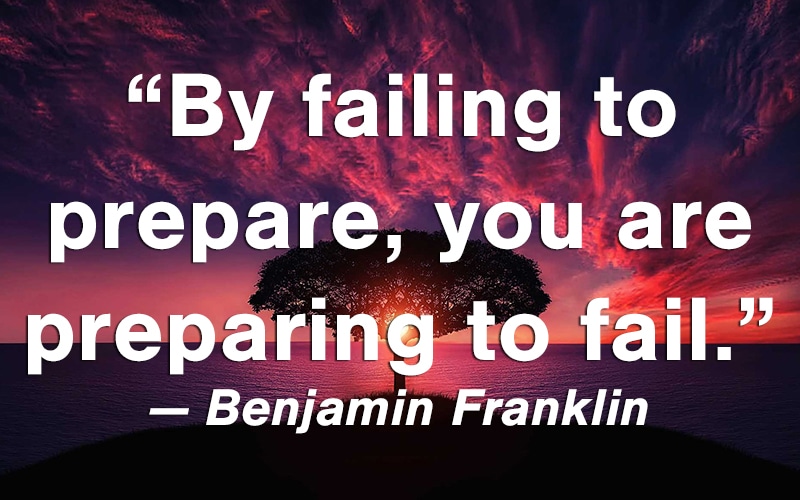What makes a successful mentoring relationship? Mentoring is an appropriate way to help individuals without experience grow and develop in a particular career path or profession.
As a mentor, the job you have at your hands is to help your mentee build needed skills as a leader or strategist, to guide your mentee into making good, sound, and positive decisions that would positively help your mentee in their career path.
But like every relationship to last and be useful, it would take both parties’ effort to build and maintain a successful relationship.

What Makes a Successful Mentoring Relationship?
Let’s look at what makes a successful mentoring relationship.
Relationship Based on Trust
To be a trusted guide to help with your mentee’s development and advancement, you should be able to get your mentee to trust you. Without your mentee’s trust, there won’t be any real benefit that the mentee would get out of the relationship.
According to the Dictionary, trust is defined as the confidence, faith, belief, or reliance on someone with a certain supposed quality.
A relationship of trust would allow the mentee to be free and open. This way, the mentor would be able to identify the mentee’s strengths and weaknesses. When there is trust, the mentee will have confidence in the advice and course of action shown to them based on this strength and weakness. This would enable them to progress.
A situation where this trust is lost would be detrimental to the relationship. A relationship without trust would lead to redundancy. Such a relationship does not last in the long run.
Defined Roles and Responsibilities
A relationship without defined roles and responsibilities of both parties would blur the line between a mentor and a mentee. Although it is good to have a relationship of trust, it would be beneficial to both parties to have a defined role. It is where the mentor comes in.
Early in the relationship, after trust has been made, the mentor should spell out the roles of both parties. It would help make the relationship as professional as possible, and the line of responsibilities also won’t be blurred.
If this line becomes blurred, the relationship will lose its intrinsic purpose. Typically, a mentee is more receptive to ideas, suggestions, and advice given by the mentor.
If the mentee forgets the role that he plays, it may go the other way round. A relationship with a blurred line of both parties’ roles and duties would not make the relationship successful.

Establish Short and Long-term Goals
A short and long-term goal should be agreed upon mutually to ensure a successful relationship with your mentee. These goals would be part of the basis for you to mentor your mentee.
You are to help and support your mentee in reaching these short and long-term goals and providing feedback to them based on their progress. It should be based on constructive criticism and how to work upon what you criticize them off.
The mentee should review this feedback and act upon it with your supervision.
Suppose the person you are mentoring begins to deviate from these mutually set goals. It is your responsibility to get them right and back on the track that leads to the goals agreed upon.
Collaboration with Your Mentee
It would be best if you collaborated with your mentee to solve whatever problem they might encounter in the pursuit of the established, agree upon goal.
You should allow your mentee the opportunity to come up with solutions. If they can’t, your input would be highly favored and looked forward to. A more convenient way to collaborate would be to identify a specific concern.
After both parties have identified this problem, brainstorm or think about possible solutions to these raised concerns.
After the possible solutions have been suggested, a decision should be made to follow the desired action path. This should be entirely left to the mentee to choose; it would help build their confidence and independent thinking.
After an approach has been chosen, you should implement it and see the outcome and if it doesn’t solve the said problem. Another approach should be taken, only after the reasons why the previous plan didn’t.
Together these features, skills, and mindsets can help ensure that mentors are well equipped to develop strong relationships regardless of the program they are working on. Now you know what it takes to be successful in a mentoring relationship.
Why Reciprocity Improves Mentor Mentee Relationships
From the video: Erik: At this moment in your life, where are you seeking advice and coaching? Simon: I have a few mentors, people who I love. And I have a very specific sort of definition of a mentor. So, I have a mentor, a remarkable human being, who’s been there for me, he’s been good to me. And look, he’s much older than me, he’s accomplished much more than me, he’s an amazing guy.
And I said to him, I love that you’re my mentor. And he replied, and I love that you’re mine. And I realized that this whole mentor-mentee relationship is unbalanced. It creates this sort of strange power down like that I know everything and you are the mentee. And so my new standard is—occasionally, I’ll get a phone call from somebody that says, hey, Simon, will you be my mentor?
And my answer is, only if you’ll be mine. In other words, I will only be someone’s mentor if I want them to be mine. In other words, if there’s something about them that I want to learn, I wanna be around, I could learn, I could be around, you know? Then I will gladly share what I have as well.
But I think mentor relationships aren’t mentor-mentee, they should be mentor-mentor.
And one should only agree to be someone’s mentor if you want them to be your mentor too. And so the people I get advice from, I’m proud to say that I get to share with them also. And it’s a mutual relationship, of all the people that I would call my mentors, of all the people that I would say I learn a lot from, I know they would all say the same of me, and I’m proud of that.
